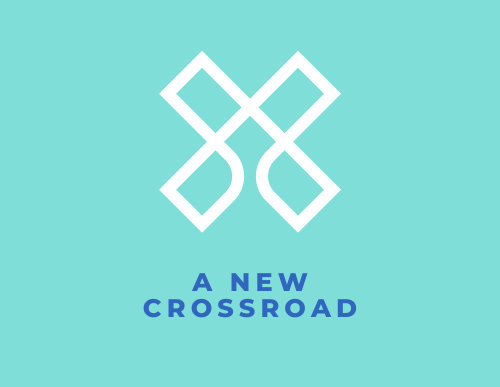Traditional Addiction Treatment Approaches
When it comes to addressing addiction, traditional treatment approaches have been widely utilized. These methods typically involve a combination of therapeutic interventions, counseling, and medication-assisted treatment. Let’s take a closer look at the overview of traditional methods and their limitations.
Overview of Traditional Methods
Traditional addiction treatment approaches are rooted in evidence-based practices and have been the cornerstone of addiction treatment for many years. These methods often include:
- Individual Counseling: One-on-one sessions with a therapist or counselor to address personal issues related to addiction and develop coping strategies.
- Group Therapy: Participating in group sessions where individuals can share experiences, gain support, and learn from others facing similar challenges.
- Cognitive-Behavioral Therapy (CBT): A therapeutic approach that focuses on identifying and modifying negative thought patterns and behaviors associated with addiction.
- 12-Step Programs: Programs such as Alcoholics Anonymous (AA) and Narcotics Anonymous (NA) that emphasize fellowship, support, and following a set of guiding principles to achieve and maintain sobriety.
- Medication-Assisted Treatment (MAT): The use of medications, such as methadone or buprenorphine, in combination with counseling and behavioral therapies to treat opioid addiction.
These traditional methods have proven effective for many individuals seeking addiction treatment, and they continue to be widely implemented in various treatment settings.
Limitations of Traditional Approaches
While traditional addiction treatment approaches have their merits, they also have certain limitations. These limitations include:
- One-Size-Fits-All Approach: Traditional methods may not fully address the unique needs and circumstances of each individual. Treatment plans are often standardized and may not account for individual variations in background, culture, or personal preferences.
- Focus on Symptom Management: Traditional approaches primarily focus on managing the symptoms of addiction rather than addressing the underlying root causes. This can limit long-term recovery success.
- Limited Holistic Perspective: Traditional methods often prioritize the biological and psychological aspects of addiction while neglecting other important dimensions such as social, emotional, and spiritual well-being.
- Stigma and Barriers to Access: Some individuals may be hesitant to seek traditional treatment due to the stigma associated with addiction or may face barriers such as lack of insurance coverage or limited treatment options in their area.
Recognizing the limitations of traditional approaches, many addiction treatment centers are incorporating holistic treatment modalities to provide a more comprehensive and personalized approach to recovery. These holistic approaches aim to address the individual as a whole, integrating various dimensions of well-being to support sustainable recovery and overall wellness.
Holistic Addiction Treatment Approaches
When it comes to addiction treatment, many individuals are turning to holistic approaches as an alternative to traditional methods. Holistic treatment takes into account the individual as a whole, addressing not only the addiction itself but also the underlying factors that contribute to it. In this section, we will explore what holistic treatment entails and the benefits it offers.
What is Holistic Treatment?
Holistic treatment approaches addiction from a comprehensive perspective, recognizing that addiction is not solely a physical ailment but also affects mental, emotional, and spiritual well-being. Holistic treatment aims to restore balance and harmony in all aspects of a person’s life, promoting healing on multiple levels.
Holistic addiction treatment incorporates a wide range of therapies and practices that focus on the mind, body, and spirit. These may include counseling, mindfulness techniques, exercise, nutrition, acupuncture, meditation, and more. The goal is to address the root causes of addiction, promote self-awareness, and develop healthy coping mechanisms.
Benefits of Holistic Approaches
Holistic addiction treatment approaches offer several benefits that set them apart from traditional methods. Here are some key advantages of choosing a holistic approach:
- Individualized Treatment: Holistic treatment recognizes that each person is unique, and therefore, treatment plans are tailored to meet individual needs. This personalized approach allows for a more comprehensive and effective treatment experience.
- Addressing Underlying Issues: Holistic treatment delves into the underlying issues that contribute to addiction, such as trauma, stress, or unresolved emotional issues. By addressing these root causes, individuals have a better chance of achieving long-term recovery.
- Focus on Wellness: Holistic treatment places a strong emphasis on overall wellness, not just the absence of addiction. It encourages individuals to adopt healthy lifestyle choices, including exercise, proper nutrition, and self-care practices. This holistic approach promotes overall well-being and supports sustained recovery.
- Integration of Mind, Body, and Spirit: Holistic treatment recognizes the interconnectedness of mind, body, and spirit. By integrating various therapies and practices, individuals can achieve a greater sense of balance and harmony in their lives.
- Complementary to Traditional Approaches: Holistic treatment approaches can be used in conjunction with traditional methods, enhancing the effectiveness of treatment. This integrative approach allows individuals to benefit from the strengths of both holistic and traditional approaches.
By embracing holistic addiction treatment approaches, individuals have the opportunity to address addiction from multiple angles, leading to a more comprehensive and transformative healing process. Whether it’s through mind-body therapies, alternative therapies, or a focus on nutrition and wellness, holistic treatment can provide a unique and beneficial path towards recovery and overall well-being.
Exploring Holistic Treatment Modalities
When it comes to holistic addiction treatment approaches, there are various modalities that focus on addressing the individual as a whole – mind, body, and spirit. In this section, we will explore some of the key modalities used in holistic treatment programs: mind-body therapies, alternative therapies, and nutrition and wellness.
Mind-Body Therapies
Mind-body therapies encompass a range of techniques that aim to promote healing by connecting the mind and body. These therapies recognize the powerful interplay between mental and physical well-being and utilize various approaches to facilitate holistic healing. Some commonly used mind-body therapies in addiction treatment include:
| Therapy | Description |
|---|---|
| Meditation | Practicing mindfulness and deep relaxation to reduce stress and promote mental clarity. |
| Yoga | Combining physical postures, breathing exercises, and meditation to enhance physical strength and mental well-being. |
| Tai Chi | Engaging in slow, fluid movements and deep breathing to improve balance, flexibility, and overall mental and physical health. |
| Biofeedback | Using electronic devices to monitor physiological responses and teaching individuals to control their bodily functions. |
These mind-body therapies can help individuals in addiction treatment programs develop coping mechanisms, reduce stress, improve self-awareness, and promote overall well-being.
Alternative Therapies
Alternative therapies in addiction treatment refer to non-traditional approaches that complement conventional methods. These therapies are often rooted in ancient practices and focus on the body’s natural ability to heal. Some commonly used alternative therapies in holistic treatment programs include:
| Therapy | Description |
|---|---|
| Acupuncture | The insertion of thin needles into specific points on the body to restore the flow of energy and promote healing. |
| Massage Therapy | Manipulating the body’s soft tissues to alleviate muscle tension, reduce stress, and promote relaxation. |
| Art Therapy | Utilizing artistic expression to explore emotions, enhance self-awareness, and promote personal growth. |
| Equine Therapy | Interacting with horses to improve communication skills, build trust, and develop emotional awareness. |
Alternative therapies can provide individuals with new perspectives, creative outlets, and unique experiences that contribute to their overall recovery journey.
Nutrition and Wellness
Nutrition and wellness play a crucial role in holistic addiction treatment. A well-balanced diet and healthy lifestyle habits can significantly impact physical and mental well-being. Holistic treatment programs often incorporate the following aspects of nutrition and wellness:
| Aspect | Description |
|---|---|
| Nutritional Counseling | Working with professionals to create personalized meal plans and address any nutrient deficiencies. |
| Exercise and Physical Activity | Engaging in regular exercise to improve physical fitness, boost mood, and reduce cravings. |
| Sleep Hygiene | Establishing healthy sleep habits to promote restful sleep, enhance cognitive function, and support overall well-being. |
| Stress Reduction Techniques | Learning stress management techniques such as deep breathing, meditation, and relaxation exercises. |
By focusing on nutrition and wellness, holistic addiction treatment programs aim to optimize individuals’ physical health, provide essential nutrients for recovery, and support their emotional and mental well-being.
Through the integration of mind-body therapies, alternative therapies, and a focus on nutrition and wellness, holistic treatment modalities offer a comprehensive approach to addiction recovery. These modalities address not only the immediate challenges of addiction but also the underlying factors that contribute to it. By treating individuals holistically, these programs empower individuals to achieve lasting recovery and improve their overall quality of life.
A New Crossroad: Holistic Treatment in Powdersville, South Carolina
Introduction to A New Crossroad
Located in the serene town of Powdersville, South Carolina, A New Crossroad is a leading addiction treatment and mental health services center that offers a holistic approach to recovery. With a team of dedicated professionals and a comprehensive range of treatment modalities, A New Crossroad aims to provide individuals with the tools and support they need to overcome addiction and improve their mental well-being.
Holistic Treatment Approaches Offered
A New Crossroad takes pride in offering a wide array of holistic treatment approaches to address the unique needs of each individual seeking help. These evidence-based modalities focus on treating the whole person – mind, body, and spirit – rather than just the addiction itself. By addressing the underlying causes and promoting overall well-being, holistic treatment approaches can be highly effective in supporting long-term recovery.
| Holistic Treatment Modalities Offered |
|---|
| Individual and Group Therapy |
| Yoga and Meditation |
| Art and Music Therapy |
| Equine-Assisted Therapy |
| Nutritional Counseling |
| Fitness and Exercise Programs |
Why Choose A New Crossroad for Addiction Treatment and Mental Health Services
There are several compelling reasons to choose A New Crossroad as your option for addiction treatment and mental health services:
- Comprehensive Holistic Approach: A New Crossroad’s holistic approach encompasses various evidence-based modalities, ensuring that every aspect of an individual’s well-being is addressed during the recovery process.
- Personalized Treatment Plans: Each individual at A New Crossroad receives a personalized treatment plan tailored to their specific needs and goals. This individualized approach allows for a more effective and targeted treatment experience.
- Experienced and Caring Team: The team at A New Crossroad consists of highly trained professionals who are dedicated to providing compassionate care and support throughout the recovery journey. Their expertise and commitment contribute to a safe and nurturing environment for healing.
- Beautiful and Tranquil Setting: Nestled in the peaceful town of Powdersville, South Carolina, A New Crossroad offers a serene and calming environment that promotes relaxation and reflection. The natural surroundings contribute to a sense of tranquility and aid in the healing process.
- Focus on Aftercare: A New Crossroad places great emphasis on aftercare planning and support to ensure a successful transition from treatment to everyday life. Through comprehensive aftercare programs and support networks, individuals are equipped with the necessary tools and resources for long-term recovery.
Choosing A New Crossroad for addiction treatment and mental health services means embarking on a journey of holistic healing and personal growth. With their commitment to providing comprehensive care and their focus on treating the whole person, A New Crossroad empowers individuals to overcome addiction, improve mental well-being, and build a brighter future.





